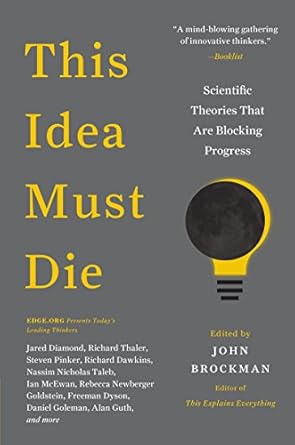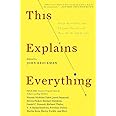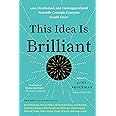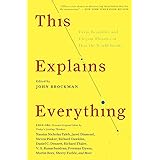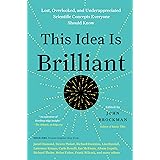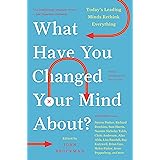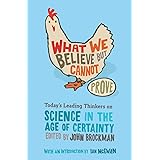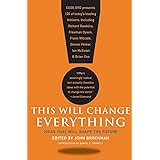
Enjoy fast, free delivery, exclusive deals, and award-winning movies & TV shows with Prime
Try Prime
and start saving today with fast, free delivery
Amazon Prime includes:
Fast, FREE Delivery is available to Prime members. To join, select "Try Amazon Prime and start saving today with Fast, FREE Delivery" below the Add to Cart button.
Amazon Prime members enjoy:- Cardmembers earn 5% Back at Amazon.com with a Prime Credit Card.
- Unlimited Free Two-Day Delivery
- Streaming of thousands of movies and TV shows with limited ads on Prime Video.
- A Kindle book to borrow for free each month - with no due dates
- Listen to over 2 million songs and hundreds of playlists
- Unlimited photo storage with anywhere access
Important: Your credit card will NOT be charged when you start your free trial or if you cancel during the trial period. If you're happy with Amazon Prime, do nothing. At the end of the free trial, your membership will automatically upgrade to a monthly membership.
Buy new:
-45% $10.99$10.99
Ships from: Amazon.com Sold by: Amazon.com
Save with Used - Good
$9.81$9.81
Ships from: Amazon Sold by: Books For You Today





Download the free Kindle app and start reading Kindle books instantly on your smartphone, tablet, or computer - no Kindle device required.
Read instantly on your browser with Kindle for Web.
Using your mobile phone camera - scan the code below and download the Kindle app.

 Audible sample Sample
Audible sample Sample 


This Idea Must Die: Scientific Theories That Are Blocking Progress (Edge Question Series) Paperback – February 17, 2015
Purchase options and add-ons
The bestselling editor of This Explains Everything brings together 175 of the world’s most brilliant minds to tackle Edge.org’s 2014 question: What scientific idea has become a relic blocking human progress?
Each year, John Brockman, publisher of Edge.org—”The world’s smartest website” (The Guardian)—challenges some of the world’s greatest scientists, artists, and philosophers to answer a provocative question crucial to our time. In 2014 he asked 175 brilliant minds to ponder: What scientific idea needs to be put aside in order to make room for new ideas to advance? The answers are as surprising as they are illuminating. In :
- Steven Pinker dismantles the working theory of human behavior
- Richard Dawkins renounces essentialism
- Sherry Turkle reevaluates our expectations of artificial intelligence
- Geoffrey West challenges the concept of a “Theory of Everything”
- Andrei Linde suggests that our universe and its laws may not be as unique as we think
- Martin Rees explains why scientific understanding is a limitless goal
- Nina Jablonski argues to rid ourselves of the concept of race
- Alan Guth rethinks the origins of the universe
- Hans Ulrich Obrist warns against glorifying unlimited economic growth
- and much more.
Profound, engaging, thoughtful, and groundbreaking, This Idea Must Die will change your perceptions and understanding of our world today . . . and tomorrow.
- Print length592 pages
- LanguageEnglish
- PublisherHarper Perennial
- Publication dateFebruary 17, 2015
- Dimensions0.95 x 5.31 x 8 inches
- ISBN-100062374346
- ISBN-13978-0062374349
The Amazon Book Review
Book recommendations, author interviews, editors' picks, and more. Read it now.
Frequently bought together
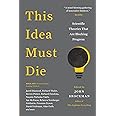
Customers who viewed this item also viewed
Editorial Reviews
Review
Praise for This Idea Must Die: “Take a look. No matter who you are, you are bound to find something that will drive you crazy.” — New York Times
“Garrulous and argumentative. ... Brockman’s formula is tried and tested. Better still, it shows no sign of getting old.” — New Scientist
“This Idea Must Die is an excellent gathering of thoughts, rants and lamentations to add to your book list.” — Forbes
“Discern[s] the zeitgeist of ideas with which some of our era’s greatest minds are tussling. ... Profound. ... Provocative. ... Mind-stretching.” — Brain Pickings
“Fascinating. ... Thought-provoking.” — Science News
“A fascinating smorgasbord of 175 short essays about every field and facet of research.” — Science News
“Brockman succeeds in presenting scientific work that will appeal to a variety of readers, no matter their background.” — Publishers Weekly
Praise for Edge: “Physics, statistics, robotics, linguistics, medicine-all are zestfully scrutinized in this exuberant, mind-blowing gathering of innovative thinkers.” — Booklist
“An epicenter of bleeding-edge insight across science, technology, and beyond.” — Atlantic Monthly
“The brightest minds in the known universe.” — Vanity Fair
“A forum for the world’s most brilliant minds.” — The Observer (UK)
“A provocative and informative compilation.” — Library Journal
From the Back Cover
Reporting from the cutting edge of scientific discovery, today's visionary thinkers target the greatest roadblocks to innovation.
Few truly new ideas are developed without first abandoning old ones. In the past, discoveries often had to wait for the rise of the next generation to see questions in a new light and let go of old truisms. Today, in a world that is defined by a rapid rate of change, staying on the cutting edge has as much to do with shedding outdated notions as adopting new ones. In this spirit, John Brockman, publisher of the online salon Edge.org ("the world's smartest website"—The Guardian), asked 175 of the world's most influential scientists, economists, artists, and philosophers: What scientific idea is ready for retirement?
Jared Diamond explores the diverse ways that new ideas emerge * Nassim Nicholas Taleb takes down the standard deviation * Richard Thaler and novelist Ian McEwan reveal the usefulness of "bad" ideas * Steven Pinker dismantles the working theory of human behavior * Richard Dawkins renounces essentialism * Sherry Turkle reevaluates our expectations of artificial intelligence * Physicist Andrei Linde suggests that our universe and its laws may not be as unique as we think * Martin Rees explains why scientific understanding is a limitless goal * Alan Guth rethinks the origins of the universe * Sam Harris argues that our definition of science is too narrow * Nobel Prize winner Frank Wilczek disputes the division between mind and matter * Lawrence Krauss challenges the notion that the laws of physics were preordained * plus contributions from Daniel Goleman, Mihaly Csikszentmihalyi, Nicholas Carr, Rebecca Newberger Goldstein, Matt Ridley, Stewart Brand, Sean Carroll, Daniel C. Dennett, Helen Fisher, Douglas Rushkoff, Lee Smolin, Kevin Kelly, Freeman Dyson, and others.
About the Author
The publisher of the online science salon Edge.org, John Brockman is the editor of Know This, This Idea Must Die, This Explains Everything, This Will Make You Smarter, and other volumes.
Product details
- Publisher : Harper Perennial (February 17, 2015)
- Language : English
- Paperback : 592 pages
- ISBN-10 : 0062374346
- ISBN-13 : 978-0062374349
- Item Weight : 15.3 ounces
- Dimensions : 0.95 x 5.31 x 8 inches
- Best Sellers Rank: #251,147 in Books (See Top 100 in Books)
- #140 in Science Essays & Commentary (Books)
- #159 in Philosophy of Logic & Language
- #677 in Cognitive Psychology (Books)
- Customer Reviews:
About the author

Discover more of the author’s books, see similar authors, read author blogs and more
Customer reviews
Customer Reviews, including Product Star Ratings help customers to learn more about the product and decide whether it is the right product for them.
To calculate the overall star rating and percentage breakdown by star, we don’t use a simple average. Instead, our system considers things like how recent a review is and if the reviewer bought the item on Amazon. It also analyzed reviews to verify trustworthiness.
Learn more how customers reviews work on AmazonReviews with images
-
Top reviews
Top reviews from the United States
There was a problem filtering reviews right now. Please try again later.
There are a lot of ideas and opinions offered in this book. Some of them are written with the laymen audience in mind, some of them were written for more scientific audience. Some of them are just "what direction we should choose" covered as "we should let the other ideas die". Some of them are convincing. Some of them are not. Some of them I found to have the straw man's fallacy, namely, presenting an idea in a too generalized manner, just in order to show why it should die. Some of them are briliant. Some of the authors want to kill an idea which as it seems to me, has already died - or almost died. At least in the academy. Some make too many assumptions. Some opinions contradict other opinions mentioned here. The main author tried to edit them in order of subjects. For me, even a few great ideas or some interesting knowledge worth the book. One thing is for sure. These are all "opinions".
“This Idea Must Die" is the thought-provocative book of scientific essays brought to you by The Edge. The Edge is an organization that presents original ideas by today's leading thinkers from a wide spectrum of scientific fields. The 2014 Edge question is, “What scientific idea is ready for retirement?” This interesting 592-page book provides over 175 short essays that address the question. The quality of the essays in this book range from a few one-star duds to a handful of outstanding 5-star essays.
For my sake, I created a spreadsheet of all the essays and graded them from zero to five stars based on overall quality. A quality essay to me is well written, interesting, addresses the topic and either teaches me something new or uses the best of our current knowledge effectively. On the other hand, those receiving two or fewer stars represent essays that were not worthy of this book. Of course, this is just one reviewer's personal opinion.
Positives:
1. Generally well-written, succinct essays. High quality-value. I’m a fan of the Edge Series.
2. An excellent question, “What established scientific idea is ready to be moved aside so that science can advance?”
3. You don’t have to read the essays in order.
4. This is well-balanced book, covers the question from many scientific angles and perspectives.
5. There were a number of outstanding essays. The following fifteen outstanding essays met my aforementioned standards and are worthy of five stars, starting with: “The Big Bang was the first moment of time” by Lee Smolin. “The hypothesis that there was a first moment of time is remarkably generic and unconstraining, as it’s consistent with an infinite number of possible states in which the universe might have begun.”
6. “Entropy” by Bruce Parker. “…we shouldn’t retire entropy, but perhaps we should treat it with a little less importance and recognize the paradox it creates.”
7. “Race” by Nina Jablonski. Makes the persuasive case that race has no place in science.
8. “Hardwired = Permanent” by Michael Shermer. “It’s time for scientists to retire the theory that God and religion are hardwired into our brains.”
9. “Cognitive agency” by Thomas Metzinger. A great essay. “As it turns out, most of our conscious thoughts are actually the product of subpersonal processes, like breathing or the peristaltic movements in our gastrointestinal tract.”
10. “Free will” by Jerry Coyne. One of the best essays of this book. “Whether or not we can “choose” is a matter for science, not philosophy, and science tells us that we’re complex marionettes dancing to the strings of our genes and environments.”
11. “Fully random mutations” by Kevin Kelly. Fascinating essay. “The evidence shows that chance plays a primary role in mutations, and there would be no natural selection without chance. But it’s not random chance. It’s loaded chance, with multiple constraints, multipoint biases, numerous clustering effects, and skewed distributions.”
12. “Robot companions” by Sherry Turkle. Did someone say robots? “We’re drawn to the robotic because it offers the illusion of companionship without the demands of friendship.”
13. “The grand analogy” by David Gelernter. Artificial intelligence. “Until we understand how to make digital computers feel (or experience phenomenal consciousness), we have no business talking up a supposed analogy between mind:brain and software:computer.”
14. “Stationarity” by Giulio Boccaletti. “Accelerating changes in climate, coupled with a more sensitive global economy, in which more people and more value is at stake, reveal that we don’t live in a world as stationary as we thought. And infrastructure designed for that world and intended to last for decades is proving increasingly inadequate.”
15. “The scientific method” by Melanie Swan. “A new improved scientific method for today. We can no longer rely exclusively on the traditional scientific method in the new era of science emerging in areas like Big Data, crowd- sourcing, and synthetic biology.”
16. “Romantic love and addiction” by Helen fisher. Compelling. “The sooner we embrace what brain science is telling us— and use this information to upgrade the concept of addiction— the better we’ll understand ourselves and the billions of others on this planet who revel in the ecstasy and struggle with the sorrow of this profoundly powerful, natural, often positive addiction: romantic love.”
17. “Anthropocentricity” by Satyajit Das. “Transcending anthropocentricity may allow new frames of reference, expanding the boundary of human knowledge.”
18. “Essentialist views of the mind” by Lisa Barrett. “Essentialism leads to simplistic “single cause” thinking, whereas the world is a complex place. Research suggests that children are born essentialists (what irony!) and must learn to overcome it. It’s time for scientists to overcome it as well.”
19. “Mental illness is nothing but brain illness” by Joel Gold. “In understanding, preventing, and treating mental illness, we will rightly continue to look into the neurons and DNA of the afflicted and unafflicted. To ignore the world around them would be not only bad medicine but bad science.”
20. Quite a few 4.5 star essays as well. It’s a matter of opinion.
Negatives:
1. Require an investment of your time to get through.
2. There are just a few essays that were not worthy of this book, but just a few.
3. I would have liked to have seen more hot-button topics addressed. Controversy is not bad for a book like this.
4. Having more essays in a book is not necessarily better but at least you can be the judge of that.
In summary, I’m a big fan of The Edge and these types of books. They’re fun to read and provide many different perspectives on a given question. Philosophy is asking the right questions and good science is providing the answers based on the best of our current knowledge. There are many bad scientific ideas that are ready for retirement but seeking the truths about our world based on good science is not one of them. These kinds of books are always fun and stimulating to read, enjoy, I recommend it.
Further recommendations: “This Explains Everything” and “This Will Make You Smarter” and “This Will Change Everything” by the same author, John Brockman.
A large number of well-known authors have contributed to this book, "This idea must die". It is a very valuable book simply because it is a timely book that is challenging the prevailing stagnant culture of conforming to all "working" theories. Almost all the active researchers, in all serious fields of research in human knowledge, have been "milking" the same foundational set of postulates behind the "working" theories that are being religiously revered by the Knowledge Gate-Keepers. The scientific enterprise has now become a mere component of the global economic enterprise. To earn a living one must publish. To get published, the manuscripts must slide through the "slotted windows" set up by the Knowledge Gate-Keepers. To, keep their jobs, the knowledge Gate-Keepers must avoid controversies at a minimum.
Thus, nobody dares to revive their childhood inquiring mind until they are already well-established, as the authors of this path breaking book.
But, how many bright and inquiring young minds have we been loosing to the culture of conformity under the persistent threat of economic survival?
Is it not tantamount to collective de-evolution when a large percentage of research population is consistently afraid of challenging the foundational postulates of the working theories to advance the continuous evolution of scientific thinking?
Chandrasekhar Roychoudhuri
Reviewed in the United States on June 28, 2015
A large number of well-known authors have contributed to this book, "This idea must die". It is a very valuable book simply because it is a timely book that is challenging the prevailing stagnant culture of conforming to all "working" theories. Almost all the active researchers, in all serious fields of research in human knowledge, have been "milking" the same foundational set of postulates behind the "working" theories that are being religiously revered by the Knowledge Gate-Keepers. The scientific enterprise has now become a mere component of the global economic enterprise. To earn a living one must publish. To get published, the manuscripts must slide through the "slotted windows" set up by the Knowledge Gate-Keepers. To, keep their jobs, the knowledge Gate-Keepers must avoid controversies at a minimum.
Thus, nobody dares to revive their childhood inquiring mind until they are already well-established, as the authors of this path breaking book.
But, how many bright and inquiring young minds have we been loosing to the culture of conformity under the persistent threat of economic survival?
Is it not tantamount to collective de-evolution when a large percentage of research population is consistently afraid of challenging the foundational postulates of the working theories to advance the continuous evolution of scientific thinking?
Chandrasekhar Roychoudhuri

Top reviews from other countries
A good book as food for thought.


